Premium Only Content
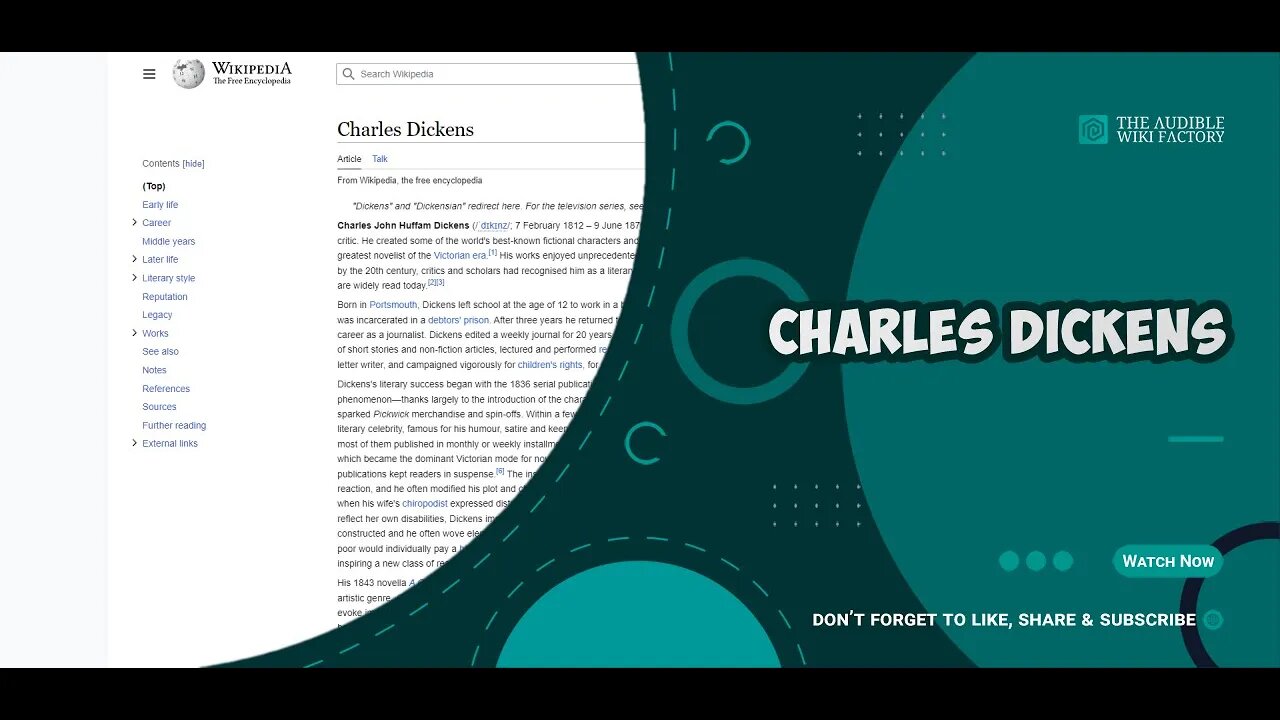
Charles John Huffam Dickens was an English writer and social critic. He created some of the
Charles John Huffam Dickens was an English writer and social critic. He created some of the world's best-known fictional characters and is regarded by many as the greatest novelist of the Victorian era. His works enjoyed unprecedented popularity during his lifetime and, by the 20th century, critics and scholars had recognised him as a literary genius. His novels and short stories are widely read today.
Born in Portsmouth, Dickens left school at the age of 12 to work in a boot-blacking factory when his father was incarcerated in a debtors' prison. After three years he returned to school, before he began his literary career as a journalist. Dickens edited a weekly journal for 20 years, wrote 15 novels, five novellas, hundreds of short stories and non-fiction articles, lectured and performed readings extensively, was an indefatigable letter writer, and campaigned vigorously for children's rights, for education, and for other social reforms.
Dickens's literary success began with the 1836 serial publication of The Pickwick Papers, a publishing phenomenon—thanks largely to the introduction of the character Sam Weller in the fourth episode—that sparked Pickwick merchandise and spin-offs. Within a few years Dickens had become an international literary celebrity, famous for his humour, satire and keen observation of character and society. His novels, most of them published in monthly or weekly installments, pioneered the serial publication of narrative fiction, which became the dominant Victorian mode for novel publication. Cliffhanger endings in his serial publications kept readers in suspense. The instalment format allowed Dickens to evaluate his audience's reaction, and he often modified his plot and character development based on such feedback. For example, when his wife's chiropodist expressed distress at the way Miss Mowcher in David Copperfield seemed to reflect her own disabilities, Dickens improved the character with positive features. His plots were carefully constructed and he often wove elements from topical events into his narratives. Masses of the illiterate poor would individually pay a halfpenny to have each new monthly episode read to them, opening up and inspiring a new class of readers.
His 1843 novella A Christmas Carol remains especially popular and continues to inspire adaptations in every artistic genre. Oliver Twist and Great Expectations are also frequently adapted and, like many of his novels, evoke images of early Victorian London. His 1859 novel A Tale of Two Cities (set in London and Paris) is his best-known work of historical fiction. The most famous celebrity of his era, he undertook, in response to public demand, a series of public reading tours in the later part of his career. The term Dickensian is used to describe something that is reminiscent of Dickens and his writings, such as poor social or working conditions, or comically repulsive characters.
EARLY LIFE
Charles Dickens was born on 7 February 1812 at 1 Mile End Terrace (now 393 Commercial Road), Landport in Portsea Island (Portsmouth), Hampshire, the second of eight children of Elizabeth Dickens (née Barrow; 1789 to 1863) and John Dickens (1785 to 1851). His father was a clerk in the Navy Pay Office and was temporarily stationed in the district. He asked Christopher Huffam, rigger to His Majesty's Navy, gentleman, and head of an established firm, to act as godfather to Charles. Huffam is thought to be the inspiration for Paul Dombey, the owner of a shipping company in Dickens's novel Dombey and Son (1848).
In January 1815, John Dickens was called back to London and the family moved to Norfolk Street, Fitzrovia. When Charles was four, they relocated to Sheerness and thence to Chatham, Kent, where he spent his formative years until the age of...
LINK TO ARTICLE: http://en.wikipedia.org/wiki/Charles_Dickens
TAGS: Charles Dickens, Writers of Gothic fiction, Writers from Portsmouth, Writers from London, Writers about activism and social change, Victorian novelists, Trope theorists, Social reformers, Social critics, People from Somers Town London, People from Higham Kent, People from Chatham Kent, People from Camden Town, Literacy and society theorists, Lecturers, Ghost story writers, English travel writers, English social commentators, English satirists, English reformers, English prisoners and detainees, English philanthropists, English newspaper founders, English male short story writers, English male poets, English male novelists, English male non-fiction writers, English male journalists, English male dramatists and playwrights, English letter writers, English historical novelists, English historians, English essayists, English biographers, English Anglicans, Educational reformers
#GeneralKnowledge #AudibleWikiFactory #Audible #Wikipedia #CharlesDickens
-
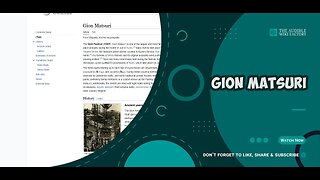 6:00
6:00
The Audible Wiki Factory
2 years agoThe Gion Festival is one of the largest and most famous festivals in Japan, taking place
423 -
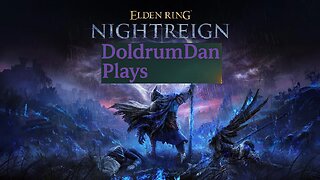 LIVE
LIVE
DoldrumDan
2 hours agoCHALLENGE RUNNER BOUT DONE WITH ELDEN RING NIGHTREIGN STORY MODE HUGE GAMING
91 watching -
 10:59
10:59
itsSeanDaniel
1 day agoEuropean Leaders INSTANTLY REGRET Disrespecting Trump
19.6K16 -
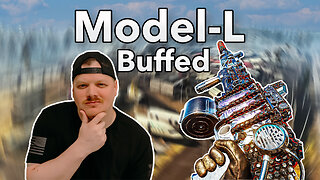 16:43
16:43
GritsGG
16 hours agoThey Buffed This AR & It Slaps! Warzone Loadout!
18.1K1 -
 2:05:30
2:05:30
Side Scrollers Podcast
20 hours agoEveryone Hates MrBeast + FBI Spends $140k on Pokemon + All Todays News | Side Scrollers Live
114K12 -
 11:06
11:06
The Pascal Show
15 hours ago $1.47 earned'THEY'RE GETTING DEATH THREATS!' Jake Haro's Lawyer Breaks Silence On Emmanuel Haro's Disappearance!
18.6K2 -
 LIVE
LIVE
Lofi Girl
2 years agoSynthwave Radio 🌌 - beats to chill/game to
327 watching -
 2:19:32
2:19:32
Badlands Media
1 day agoDEFCON ZERO Ep. 005: False Flags, Cyber Fronts & Global Power Plays
159K70 -
 2:35:23
2:35:23
FreshandFit
10 hours agoWhy Black Men Don't Date Black Women Debate
46.5K48 -
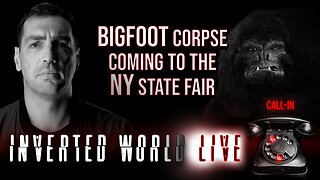 2:03:42
2:03:42
Inverted World Live
14 hours agoBigfoot Corpse Coming to the NY State Fair | Ep. 94
113K27